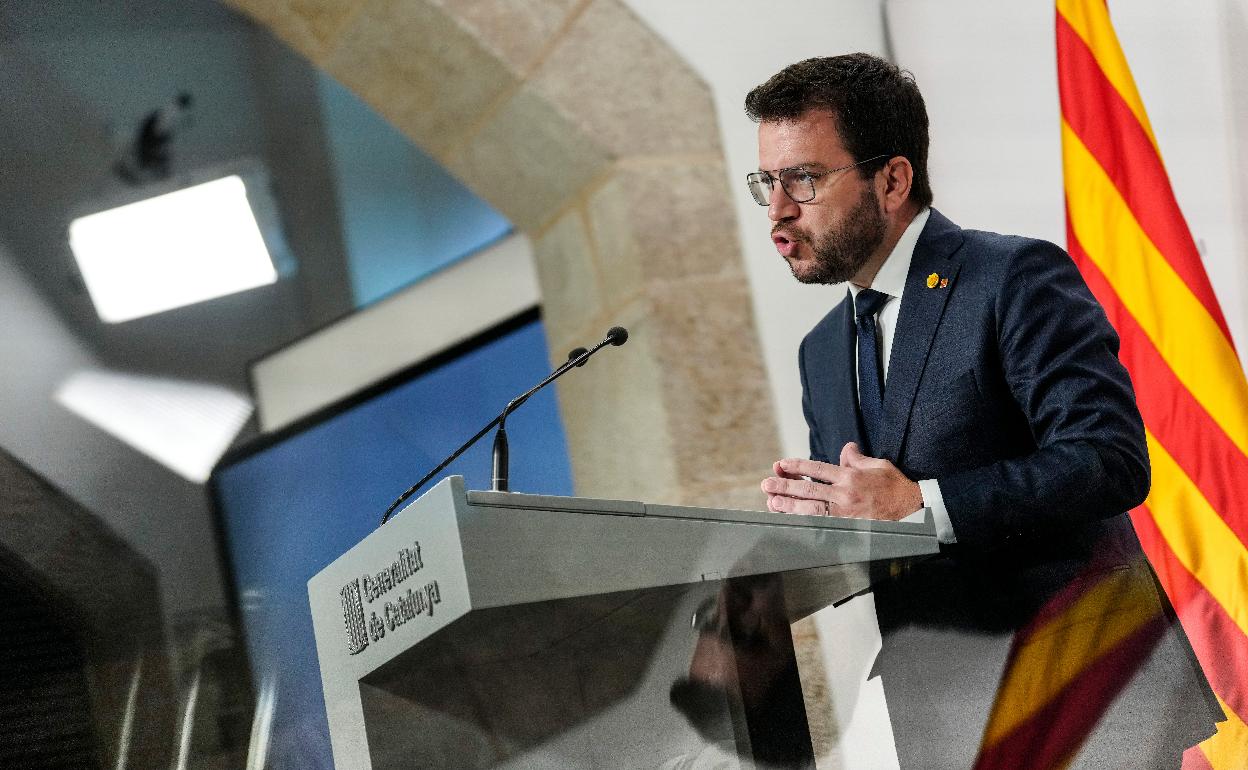Divorce proceedings
THE EURO ZONE ·
Despite Pere Aragonès seeing Scotland's referendum as an example to follow, legal secession from Spain isn't that straightforwardNicola Sturgeon and Pere Aragonès, respectively pro-independence leaders of Scotland and Catalonia, share the same dream: a legal referendum on secession. Scotland, of course, has already had one: held in September 2014, it was authorised in advance by Westminster and resulted in a decision to remain in the UK. Sturgeon is now planning another referendum for October 2023 and Aragonès, inspired by Scotland's example, wants one for Catalonia. Neither the Scottish or Catalan independence projects, though, have much chance of success in the near future.
Aragonès sees the Scottish referendum as an example of what can be achieved with political collaboration. In the UK in 2014, this took the form of the Edinburgh Agreement, with which then prime minister David Cameron temporarily transferred power from Westminster to Holyrood, thus allowing the latter's parliament to approve a vote on secession. A similar arrangement, in this case between the Catalan government and Madrid, is one of the goals of Aragonès in the latest talks with Pedro Sánchez, which began on July 15th.
Unlike the UK, though, Spain has a written constitution committed to preserving the country's "indissoluble unity". Like any constitution, this document is open to revision, but there are no signs that Sánchez has any intention of doing so in favour of Catalan secessionists. He says that he always has the 1978 document "in hand" when he meets with the region's premier and that there will be no independence referendum in Catalonia on his watch.
The non authorised independence referendums held in Catalonia in 2014 and 2017 (both of which returned emphatic votes to divorce Spain, albeit on turnouts of less than 50%) provide Sturgeon with examples of what can happen if you proceed illegally: either the vote's simply null and void (2014) or it's used by the establishment to impose draconian sanctions on the orchestrators (2017).
Nine of the Catalan politicians who arranged the 2017 vote were sentenced to at least a decade behind bars by Spain's Supreme Court, although they were pardoned and released by Sánchez last year. According to Catalan NGO Omnium, though, there are still 70 senior Catalan politicians awaiting trial for the exact same offences.
There's one hugely risky way out of this impasse for Sánchez or his successor: gambling that Catalans would vote to remain in Spain, the Spanish premier could grant an independence referendum. If the result went the central government's way, the Prime Minister could legitimately declare the Catalan independence argument closed for a generation.
Yes, and there's about as much chance of that happening as there is of Sturgeon getting a second "once in a generation" vote on divorcing the UK and Aragonès convincing Sánchez to revise the Spanish Constitution.

